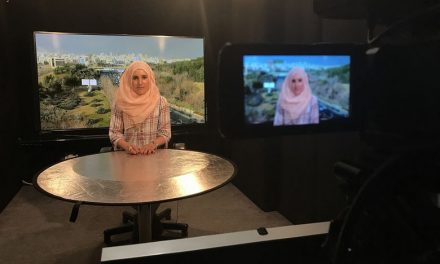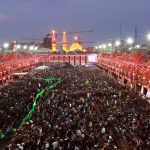
A Middle East expert specializing in Yemeni affairs says the Yemen conflict “is primarily a war of state interests not religious doctrine or religious communities.”
In an interview with Shia Followers, Professor Charles Schmitz said, “Sectarian language is sometimes used to mobilize followers in the conflict, but it is a conflict of political interests not religious ones.”
Here’s the full transcript of the interview:
Since 2015, Saudi Arabia have been targeting the Houthis in Yemen. What’s Riyadh’s objective in Yemen? Is this a sectarian war?
Charles Schmitz: Riyadh’s objective in the war in Yemen is to reestablish Saudi dominance of Yemen. The southern border with Yemen is insecure, and the Saudis want to ensure Saudi influence on the Yemeni government. The Houthi are independent and have defeated traditional Saudi allies in Yemen. The Houthi are friendly with Iran, and the Saudis fear an Iranian foothold in the Arabian Peninsula, though the Houthi receive only minimal assistance from Iran.
Is the Yemen crisis result of a conflict of political interests or religious ones?
Charles Schmitz: It is primarily a war of state interests not religious doctrine or religious communities. Saudi Arabia supported the Zaydi Imams in the war of 1962-1970 against the republicans who were both Zaydi and Shafii. Saudi Arabia’s difficulty with Iran is not that Iran is Shia, but that Iran is challenging Saudi influence in the region. Sectarian language is sometimes used to mobilize followers in the conflict, but it is a conflict of political interests not religious ones.
On the last day of a visit by the Saudi crown prince, Britain approved the sale of 48 highly advanced fighter jets to Saudi Arabia on Friday, brushing aside calls for an embargo over the kingdom’s role in Yemen. How do you evaluate the role Britain and other Western countries play in Riyadh’s aggression on Yemen?
Charles Schmitz: The United States and the UK back Saudi Arabia. Both see Saudi Arabia as their traditional ally in the region and Iran as their enemy. Obama questioned this logic, Trump accepts it wholeheartedly. Because the U.S. and the UK are powerful countries and their leadership backs Saudi Arabia, there is little chance that protests will have much of an effect. Theresa May signed an agreement with bin Salman this weekend that included provisions for a political solution in Yemen, but she also signed the arms deal you mentioned.
Have the Saudis been able to achieve their objectives in Yemen?
Charles Schmitz: The real tragedy is that the Saudis are not achieving their objectives in Yemen, and the international community does not challenge the Saudi strategy. There are certainly ways to guarantee Saudi security and have a political solution that includes the Houthis in Yemen, yet the U.S. and UK seem disinclined to challenge the Saudi methods of achieving Saudi goals.
Dr. Charles Schmitz is a professor of geography at Towson University in Baltimore, Maryland where he has taught since 1999. Dr. Schmitz is a specialist on the Middle East and Yemen. He began his academic career as a Fulbright Scholar and American Institute for Yemeni Studies fellow in Yemen in the early 1990s. Dr. Schmitz’s current research interests include the political economy of development in Yemen, international law and the counter terror policy, international governance and failing states, and the sociology of contemporary Yemeni society. Currently, he is vice president of the American Institute for Yemeni Studies and a member of the board of the Council of American Overseas Research Centers.










